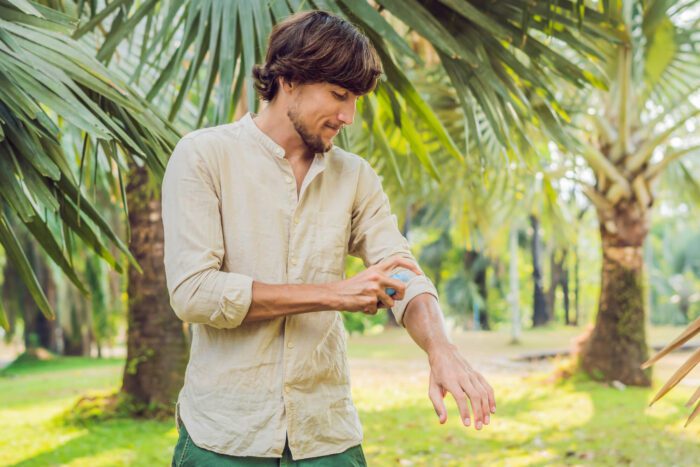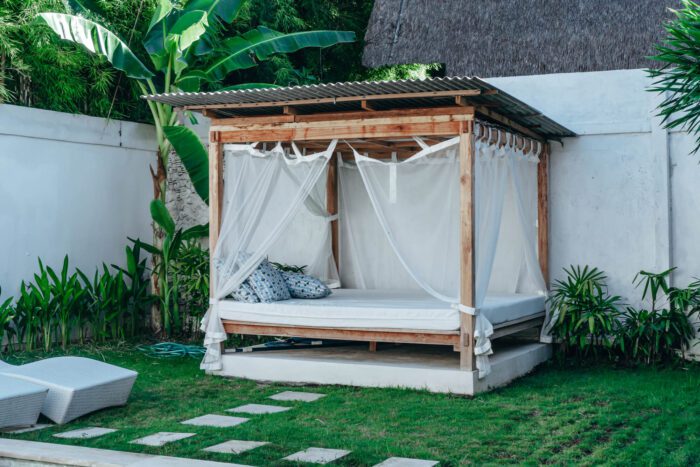Indonesia, with its stunning landscapes, vibrant culture, and warm tropical climate, is a dream destination for many travelers. However, amidst the allure of this beautiful archipelago lies a health risk that visitors should be aware of—dengue fever.
The number of dengue fever cases is increasing globally, reaching an all-time high in 2023, with Indonesia ranking among the world’s 30 most highly endemic countries.
While the rise in dengue fever cases globally, including in Europe, highlights the importance of awareness, it shouldn’t discourage you from visiting this beautiful country. Instead, understanding how to prevent and manage the risks can help ensure your trip remains enjoyable and worry-free.
This article will guide you through all the essential points, from prevention to potential treatment, so you can fully enjoy your Indonesian adventure.
What is Dengue Fever?
Dengue fever, also known as dengue or break-bone fever, is a viral infection transmitted by the bite of an infected Aedes mosquito, particularly Aedes aegypti. In most cases, the illness is mild, with symptoms including high fever, severe headaches, pain behind the eyes, joint and muscle pain, skin rash, and mild bleeding such as nosebleeds or easy bruising.

While dengue fever is not typically life-threatening and most people recover on their own, more severe cases can occur, sometimes leading to death. The greatest risk is for those who have had dengue before, as subsequent infections can lead to worsening symptoms.
Areas in Indonesia Prone to Dengue Fever
Dengue fever is prevalent in tropical regions, including countries like Thailand, Vietnam, Malaysia, and Indonesia is no exception.
Some areas in Indonesia are particularly prone to dengue outbreaks, especially regions with high population density. Bali, Jakarta, and parts of Sumatra frequently report higher numbers of dengue cases.

The risk of dengue fever is also elevated during the rainy season, which typically runs from November to April, as standing water becomes a breeding ground for mosquitoes.
When is the best time to visit Indonesia, and should you avoid the rainy season? Read Best Time to Visit Indonesia: Months and Weather Insights.
Prevention Tips for Travelers
Unlike some other mosquito species, Aedes mosquitoes are most active during the day, particularly in the early morning and late afternoon. These mosquitoes breed in stagnant water, which can accumulate in containers, plant pots, and other receptacles often found in tropical environments.
Preventing mosquito bites is the best way to avoid dengue fever, as there is no specific treatment for the disease.
Practical Tips to Prevent Mosquito Bites
Clothing
Wear long-sleeved shirts and long pants, especially when outdoors. Light-colored clothing is preferable as it is less attractive to mosquitoes compared to dark colors.
If you tend to sweat a lot, frequent showers can help reduce body odor and sweat, which are among the factors that attract mosquitoes. While showering can temporarily make you less appealing to mosquitoes, it’s not a foolproof method for keeping them away.

Repellents
Opt for insect repellents containing DEET, picaridin, or oil of lemon eucalyptus. Apply it on exposed skin and reapply as directed on the product label.
One of the most popular repellents in Indonesia is Soffell. While it’s not a natural product, it’s highly effective, affordable, and widely available in stores like Alfamart or Indomaret throughout the country. If you prefer natural alternatives, look for products containing oils such as lemongrass or lavender, which are known to repel insects.
It’s also advisable to buy your repellent in Indonesia rather than bringing it from home. Repellents purchased in Indonesia are specifically formulated for tropical mosquitoes and tend to be more effective, not to mention more affordable compared to those bought abroad.
Accommodations
Mosquitoes are less active in cool, dry environments, and air conditioning creates conditions that are unfavorable for them. The cool air reduces humidity, which mosquitoes need to thrive, while the fan disrupts their weak flying abilities, making it harder for them to land on you. Cooler temperatures also make it less likely for mosquitoes to be active, as they prefer warm, humid environments.
Choose accommodations with air conditioning, fan or at least well-screened windows and doors. If staying in a less developed area, consider bringing a portable mosquito net.

What to Do When Infected by Dengue
Dengue fever symptoms typically appear four to ten days after being bitten by an infected mosquito. Key symptoms to watch for include:
- Sudden, high fever
- Severe headache
- Pain behind the eyes
- Severe joint and muscle pain (often referred to as “breakbone fever”)
- Skin rash
- Mild bleeding (such as nosebleeds or easy bruising)
If you start feeling unwell within 14 days of visiting a dengue-prone area, don’t delay—consult a doctor right away. Getting a proper diagnosis is important to rule out other illnesses like malaria or typhoid fever, which have similar symptoms. Early detection and treatment can significantly reduce the risk of complications.
Treatment of Dengue
Once diagnosed, the treatment for dengue fever primarily focuses on managing symptoms, as there is no specific antiviral treatment available. The recommended course of action includes rest, staying hydrated, and using pain relievers like acetaminophen to alleviate symptoms.
Backindo Tip: Avoid using aspirin or ibuprofen, as they can increase the risk of bleeding.
In severe cases, hospitalization may be necessary, and in some instances, blood transfusions might be required to manage complications.
Vaccines for Dengue
A vaccine for dengue fever is now available, but it is generally recommended only for those who have previously had dengue, as they are at a higher risk of severe symptoms if reinfected. For most travelers, the most effective preventive measure remains avoiding mosquito bites through the use of repellents, protective clothing, and choosing accommodations with mosquito barriers.
Should You Be Afraid of Dengue While Traveling in Indonesia?
While dengue fever is a serious concern in Indonesia, it is preventable with the right precautions. By staying informed about the risks and taking proactive steps to protect yourself from mosquito bites, you can enjoy your time in this beautiful country without compromising your health. With proper preparation, there’s no need to let the fear of dengue deter you from experiencing all that Indonesia has to offer.
FAQ
When is dengue fever season in Indonesia?
Dengue fever season in Indonesia typically coincides with the rainy season, which generally runs from November to April. During this time, the Aedes mosquitoes that transmit dengue breed more actively in standing water, leading to a higher incidence of dengue cases. However, dengue can occur year-round in some areas, so it’s important to remain vigilant at all times.
Is dengue common in Bali?
Yes, dengue fever is relatively common in Bali, particularly during the rainy season. Bali’s tropical climate and popularity as a tourist destination make it a hotspot for dengue, especially in densely populated or urban areas where mosquitoes thrive. Visitors should take precautions to protect themselves from mosquito bites while in Bali.
How do we prevent dengue?
The best way to prevent dengue fever is by avoiding mosquito bites (by wearing appropriate clothing, using repellent, staying in mosquito-proof accommodations).
